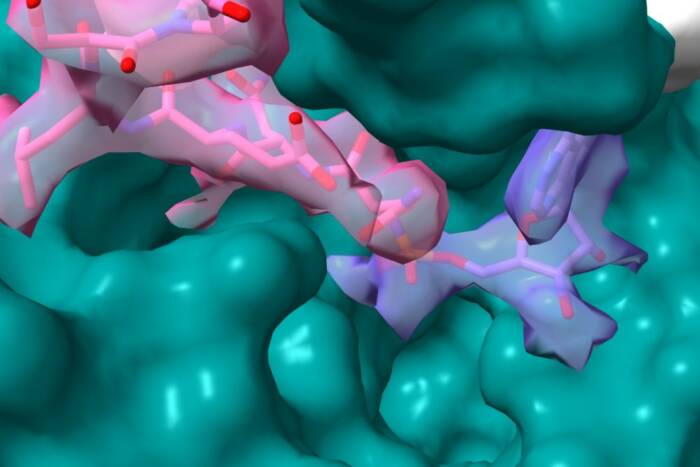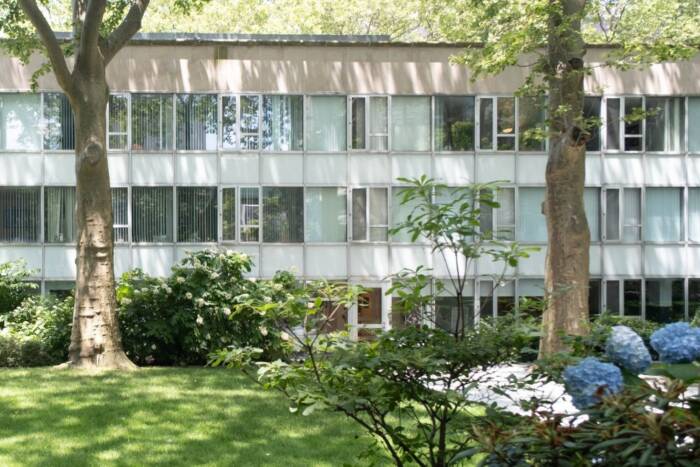Newborns could benefit from time away from home, rodent study suggests
First-time parents face an array of choices, each one seemingly vital for a newborn’s developing body and brain: cloth or disposable diapers? Breast milk or formula? Nanny or daycare? New research from neurobiologists at Rockefeller University may have something to say about that last question, suggesting that a child’s brain may benefit from the stimulation provided by out-of-home childcare.
In a paper published by the Proceedings of the National Academy of Sciences this fall, Rockefeller University’s Bruce McEwen, Alfred E. Mirsky Professor and head of the Harold and Margaret Milliken Hatch Laboratory of Neuroendocrinology, describes how newborn rats placed in a new environment — without their mother present — showed greater brain growth as adults than pups that remained in their home environment. Extrapolated to humans, the results suggest that children who receive childcare outside of their home environments might achieve better social and cognitive development.
McEwen, research associate Russell Romeo and collaborator Akaysha Tang, an associate professor of psychology at the University of New Mexico, followed 16 litters of newborn rats from birth. They divided each litter of pups into two groups, and once a day for the rats’ first three weeks they moved the mother to a separate cage, left half the litter where they were and moved the other half to a different cage. After three minutes, they returned the pups and their mother to their home cage and observed the mother rat’s behavior to see which pups she paid attention to first. (Each mother seemed to show a slight preference for the pups that had not left the cage.)
Once the rats had grown, the researchers began to test different facets of their brain development. At seven months old, rats that had been given the three-minute “novelty sessions” as pups were faster to learn and remember the location of a platform in a tank of water than their stay-at-home siblings. These same rats also had an increased ability to boost their levels of corticosterone — a hormone that can help excited rats process information — in response to unexpected stress.
After 12 months, the scientists tested the rats’ brain symmetry, observing them for five minutes and counting how many times they turned around and in which direction. The stay-at-home rats tended to circle equally in both directions; the “novelty” rats preferred to go right, indicating greater brain asymmetry than their siblings and another brain property associated with spatial cognition in rats. When their subjects were 13 months old, the researchers individually trained them to go down a runway, rewarding each rat with a piece of chocolate at the end. There was no significant difference between the novelty rats and the home rats in either training time or the number of rewards they obtained. But when the researchers put the novelty rats head-to-head with the home rats to see what would happen when two rats raced for a single reward, they found that the novelty rats had greater success at scoring the chocolate.
“What this says is that brief stimulation outside the home environment does seem to have a beneficial effect on cognitive development and socialization,” McEwen says. Additionally, by separating the mother from both groups of her pups and observing her behavior upon her return, they were able to rule out maternal influence: The novelty-exposed pups’ more advanced brains were not a result of their mother giving them better treatment than their stay-at-home siblings. “The idea being,” McEwen says, “that if the mother-is-everything idea is correct, mommy would have preferred the pups that had been separated and nursed them first and, perhaps, most. Instead it was the opposite: If anything, she preferred them last.”
The mother is certainly very important, McEwen says, but so are external influences. “It’s very tempting to extrapolate this to the topic of preschool for kids. It’s an attractive idea, and lends itself to support the notion that simply being protective in the home environment, no matter how good and supportive the parental care is, is not as sufficient for good and full social and cognitive development as having experiences outside the home.”
Proceedings of the National Academy of Sciences 103(42): 15716-15721(opens in new window)


